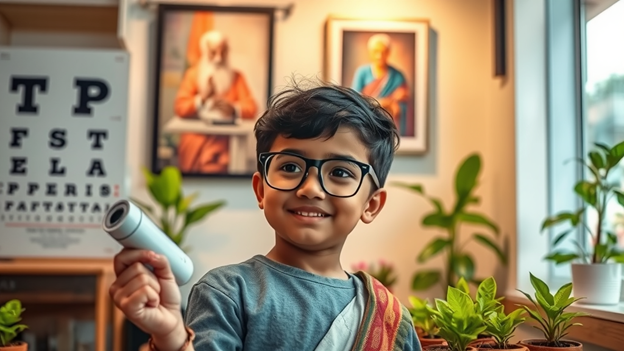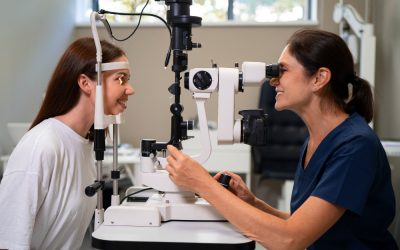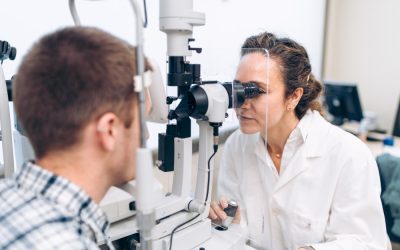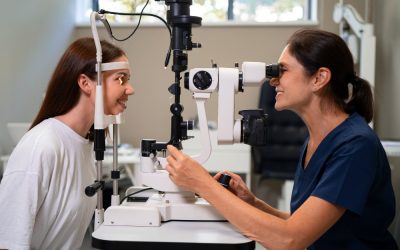Can You Stop Myopia? Expert Advice on Prevention and Management

Myopia, or nearsightedness, means seeing things clearly up close but with difficulty at a distance. This vision issue is a growing concern worldwide. The numbers are rising, affecting people of all ages. Why is this a worry? Because myopia can lead to serious eye problems if not addressed early. Early intervention is crucial to slow down or manage the progression and address any issues before they become severe. If you’re wondering how to prevent myopia from worsening or taking steps to avoid it, understanding and reacting early could make all the difference.
Understanding Myopia: Causes and Risks
What causes this eye condition? Often, it’s a mix of genetics and environment. If your parents or grandparents needed glasses for distant vision, your risk increases. But it’s not just about family; excessive screen use can also contribute. It is essential to recognize symptoms early, such as squinting or unclear vision at a distance. If you spot these signs, consult an eye specialist. Accurate diagnosis can involve simple tools, like eye charts, or more advanced methods. Knowing what contributes helps in how to stop myopia progression or even avoid it from worsening, giving you a clear path to better eye health.
Realistic Expectations: Can Myopia Be Stopped?
Can you completely stop myopia? It’s more about slowing the progression rather than halting it abruptly. Early intervention benefits include slowing down the worsening of sight and maintaining eye health. Many myths revolve around eye health, especially about preventing myopia. It’s crucial to differentiate facts from myths to set realistic expectations on how to prevent nearsightedness. Staying informed helps you make better choices for your sight.
Proactive Myopia Prevention Strategies
A. Lifestyle Adaptations
Lifestyle changes can significantly impact how quickly nearsightedness progresses:
- Encourage outdoor activities: Spending time outside can benefit your eyes.
- Manage screen time effectively: Limit duration and take frequent breaks.
- Optimal reading conditions: Ensure proper lighting to reduce eye strain.
B. Natural Approaches to Reduce Myopia
If you ask, how to reduce myopia naturally, several tactics can help:
- Eye exercises such as the 20-20-20 rule: Every 20 minutes, look 20 feet away for 20 seconds.
- Focus shifting: Switch focus between near and far objects to relax your eye muscles.
These practices aren’t guaranteed cures but can aid in how to avoid short sightedness from worsening.
Effective Myopia Management Tactics
A. Optical Solutions
Managing myopia is not only about preventive tactics; sometimes innovative solutions are necessary:
- Innovative eyeglasses options: They can help correct vision and slow progression.
- Specialized contact lenses: These are designed to improve sight and can sometimes control the degree of myopia.
B. Pharmacological Management
Low-dose atropine is an eyedrop proven to slow myopia in children. Using pharmaceuticals under professional guidance offers another way to address myopia.
C. Combined Treatment Approaches
Sometimes, using a combination of strategies helps tackle myopia more effectively. Combining lifestyle changes, eyewear, and drops might provide a tailor-fit solution for managing eye health.
Choosing the Best Management Approach for You
Your age, lifestyle, and how quickly your myopia progresses are key factors in deciding your best strategy. Regular eye exams help track changes over time, allowing for timely adjustments. Always seek professional consultation to guide your decisions on how to stop progressive myopia. An expert eye care professional can recommend the right mix of interventions for you.
Long-Term Implications and Managing High Myopia
High myopia poses risks, including retinal detachment or glaucoma. Comprehensive eye care throughout life helps manage these risks. Preventive steps include regular check-ups and consistent management strategies tailored to your needs. Knowing how to prevent myopic macular degeneration helps in maintaining lifelong eye health.
Emerging Innovations and Future Prospects in Myopia
Advancements in treatment options offer hope for managing myopia. Newer therapies and medicines continue to evolve. Clinical trials showcase promising results, potentially transforming how we handle how to reduce short sightedness naturally. Keeping updated with these continuous advancements ensures you take advantage of the most effective solutions tailored to your situation.
Conclusion and Encouragement for Myopia Care
To sum up, understanding the how can I prevent myopia question involves a proactive, multifaceted approach. With lifestyle adjustments, innovative technologies, and routine eye care, you prepare yourself against myopic challenges. Being proactive isn’t just about reducing the numbers on a vision chart but ensuring your long-term well-being. Whether you’re exploring how to prevent myopia naturally or seeking the best management methods, informed choices are always the best choices.
If you’re struggling with myopia or experiencing blurry vision, don’t wait to get the help you need. At Global Eye Hospital, our expert ophthalmologists offer personalized treatments to manage and correct myopia, helping you regain clear vision and improve your quality of life. Contact us today to schedule an eye exam and explore the best solutions for your vision. Call [+91-8008228811] or visit [https://globaleyehospital.com/] to book your appointment now—your eyes deserve the best care!


